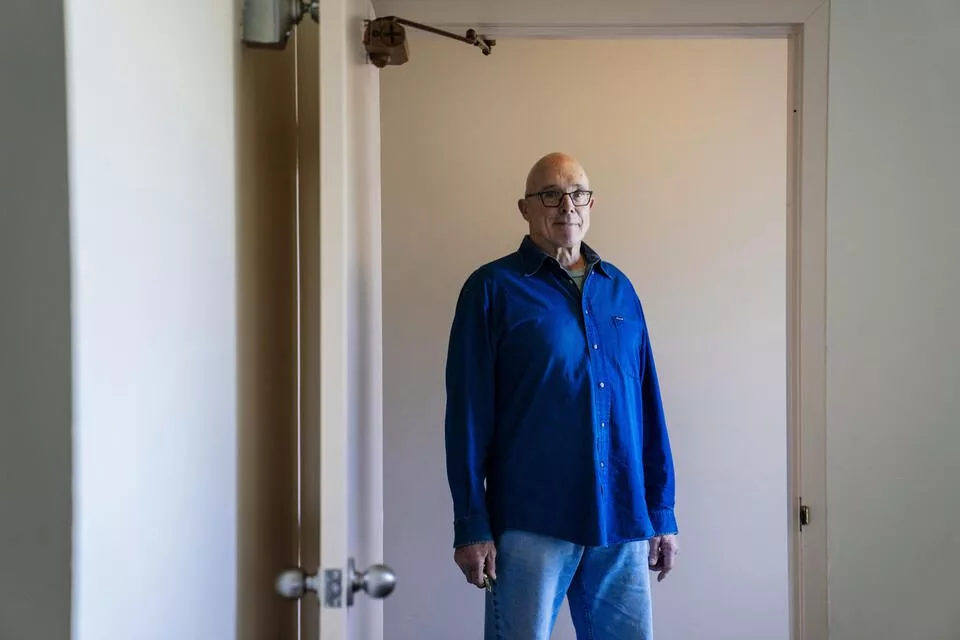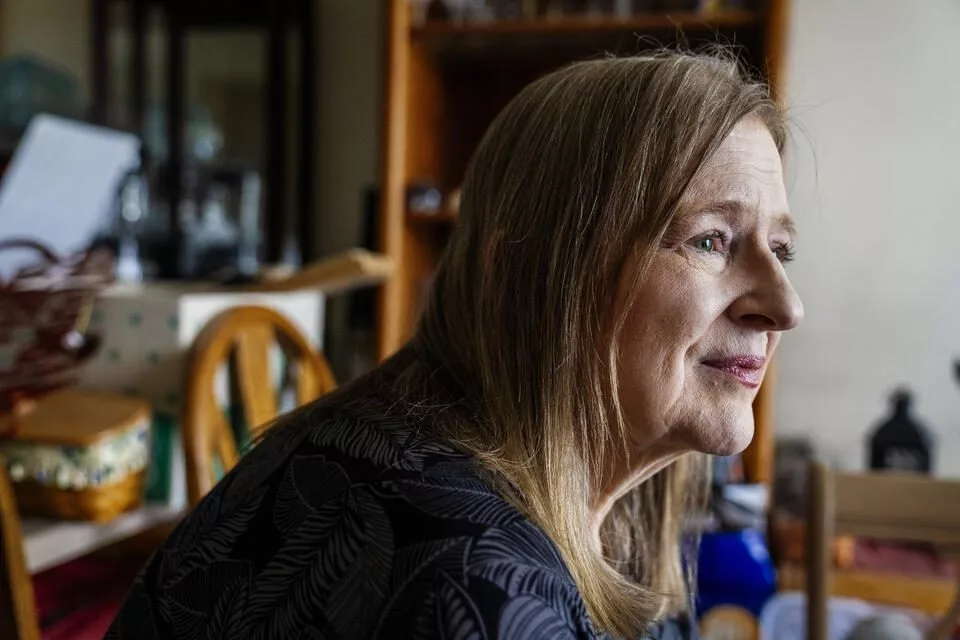Renters on fixed incomes hope a 10% ceiling on increases will provide relief, while older landlords worry it will force them out of business.
LYNNWOOD, WA – Royce Timothy is trying to figure out what to sell next.
To pay her rent last month, she sold a gold chain, a commemorative coin set and a ring with sentimental value. This month, she might dip into her collection of Beanie Babies or ornaments, which she’s accumulated over decades in boxes that line the walls of her apartment.
Since moving into an affordable senior housing complex in Lynnwood six-and-a-half years ago, Timothy’s rent has steadily increased – with hikes up to 14.5% some years. The building was sold within a year of when she moved in, and the new owners quickly began increasing rents as well as utility and parking costs. Timothy’s property is now owned by Greystar, a large property management company currently being sued over alleged price-fixing by the Attorney General’s Office.
Timothy, 68, relies on monthly Social Security payments to cover rent, insurance and groceries. Unexpected expenses leave her scrambling to make ends meet. She’s used the last of her savings, and her diabetes makes it difficult to get a part-time job like some of her neighbors, who bag groceries at Safeway or work as a cashier at McDonald’s.
As she faces a new lease with increased costs starting in May, Timothy said she doesn’t know what she’s going to do. In a few months, she may be living out of her car.
“I keep praying for a miracle to happen,” she said.
For many seniors who rely on fixed incomes, the unpredictability of the rental housing market can be destabilizing. A bill working its way through the Legislature aims to provide some stability by capping how much property owners can raise a resident’s rent every year.
House Bill 1217 passed the state House of Representatives last month and made it out of the state Senate on Thursday, April 10. It now heads back to the House for final approval.
As lawmakers continue to debate the policy in Olympia, seniors across the state are waiting to see what comes next. Some, like Timothy, hope that capping yearly rental increases will bring relief and predictability. But others, who rely on income from their own rental properties to supplement their retirement savings, worry the regulations will force them out of business, which could only worsen an already strained housing market in Washington.
A long political road
A proposal to cap rental increases and limit tenants’ fees has been a priority for at least three years for progressive Democrats and housing advocates, who say it is necessary to help keep people in their homes.
Republicans, moderate Democrats, housing providers and the business community, however, have pushed back. They argue the proposal will restrict new housing development in Washington, which will only strain renters even more.
This session, the bill is the closest that it’s ever been to becoming law.
Under the proposal, rent for tenants in a residential apartment or house would be capped at 10% plus inflation. There are exemptions for housing built in the past 15 years and housing owned by a nonprofit or a public housing authority. Single-family homes not owned by a corporation are also exempt.
After a tenant moves out, property owners can set the new rent at any price they want. The rental cap provision would be in effect until July 1, 2040.
For owners of manufactured or mobile homes, rental increases will be capped at 5% and some fees limited. Move-in and security deposit fees can’t exceed one month’s rent, and late fees can’t exceed 2% of the rent the first late month, 3% the second late month and 5% the third.
A tenant or the attorney general’s office could sue a property owner they believe is in violation of the law.
Unintended consequences
Terry Goodwin remembers spending his teenage years helping with maintenance on a 56-unit property in Tukwila that his father managed. Now 72, Goodwin bought the property from his dad 26 years ago and has managed it as a 55-plus community ever since.
Some of his tenants have lived there for more than 20 years, something he doesn’t take lightly, he said.

If residents are struggling to pay their rent some months, he tries to help. He was at his properties until 10 p.m. the night before a recent thunderstorm, making sure it was prepared to withstand strong winds. He tells everyone who lives there to call him any time of day or night if they ever feel unsafe. He hangs Christmas cards from tenants on the walls of his office.
“The people who live in my property trust me to provide a quality living environment and boy, do I take that seriously,” he said. “Everybody here puts their life in my hands.”
Up until this point, Goodwin said his annual rent increases have never gone up by more than $60 a month.
But he said he worries that if House Bill 1217 becomes law, he will be forced to max out his annual increases at the cap to keep up with the rental market. Goodwin said the rest of the expenses that go into his rental business, like insurance and property taxes, are also increasing. A rental cap means less cushion to keep up with them, and could mean selling the property altogether, he said.
“It will drive me out of business very soon,” he said.
The property, along with income from several smaller holdings in Seattle, is the source of his retirement savings, and while he’s not ready to retire yet, Goodwin said the cap proposal could accelerate his decision.
“Personally, I will be OK, if I have to sell,” Goodwin said. “But I’m not sure about the residents here.”
Goodwin said it’s likely he’ll be forced to sell his property to a large investor who won’t be shy about raising rents and won’t have the same relationship with tenants as he does. He worries that state and local regulations, like rental caps, will only result in fewer small owners and more large management companies whose sole focus is making money.
“People are going to suffer because people like myself aren’t going to be able to swing at all the pitches across the plate,” Goodwin said. “We’re going to strike out and strike out and strike out.”
Mobile homeowners wait for relief
Sara Eubank and her husband Dave sold their home in Utah four years ago and moved to Washington to be closer to their kids.
They bought a manufactured home in a 55-plus community in Bremerton with hopes of retiring. Since then, the rent on the property where their home sits has gone up $1,000 a month – far outpacing their Social Security payments.
They both went back to work to make some extra cash, but as Dave Eubank faces a cancer diagnosis and chemotherapy, Sara Eubank said she doesn’t know what they’re going to do.
“We borrow from Peter to pay Paul every month trying to figure how to work things out,” she said.
Sara Eubank said they’ve considered ways to save money on groceries, cut expensive medications and stopped traveling.
The current version of the rental cap proposal removed some limits on fees and notice requirements for renters in apartments but kept many of those protections for people living in manufactured homes. It requires property owners to give mobile homeowners 90 days’ notice if their rent is increased.
Sara Eubank said the proposal would help manufactured homeowners budget ahead. She said she believes her rent will be raised to the 5% limit every year, but “at least we’ll know what’s coming.” A former state legislator in Utah, she’s spent her life working in politics and activism and has experience in hospitality and caregiving for people with dementia. Her husband has always worked in construction.
After working their whole lives, she said it’s hard to fathom that she can’t afford to live in a manufactured home.
“One never believes that you will contribute your whole life and then reach an age where suddenly you just feel like nobody cares, that it really doesn’t matter,” Sara Eubank said.
Cutting back
With her lease ending this month, Timothy is scrambling to find another place to live.
But moving fees for a smaller unit in the building are costly, and she’s struggled to get access to low-income housing services because her Social Security payment makes her income too high, putting her in a “gray area,” she said.
“Unless you’ve got a lot of money, seniors don’t have a place to live,” she said. “I don’t think people are taking this seriously.”
If she can’t find another place to live, Timothy is considering moving into her car. But she needs access to refrigeration to store her insulin for her diabetes, and, to avoid going blind in one eye, she’ll soon need cataract surgery. After surgery, she’ll need a clean, safe place to recover.
“If I get homeless, it’s a death sentence for me,” she said.
So she scours her storage unit for valuable collectibles and posts them on eBay, hoping someone will buy them in time to pay her rent.
And as she waits, Timothy cuts back her spending.
She stopped going to concerts for her favorite ’80s cover bands. She stopped ordering Chinese food. She doesn’t think she’ll be able afford her annual membership to Hallmark’s ornament club – she’s been a member since the club’s inception in 1987. She is canceling her landline, and she’s considering no longer buying her diabetic supplies, which cost about $100 a month.
Next month, the calculations will begin again.
Taped next to her computer is a fortune that she got years ago, when she could still afford to order takeout. It’s her reminder: “Keep up the good work. You will soon be rewarded financially.”
Visit cascadepbs.org/donate to support nonprofit, freely distributed, local journalism.
